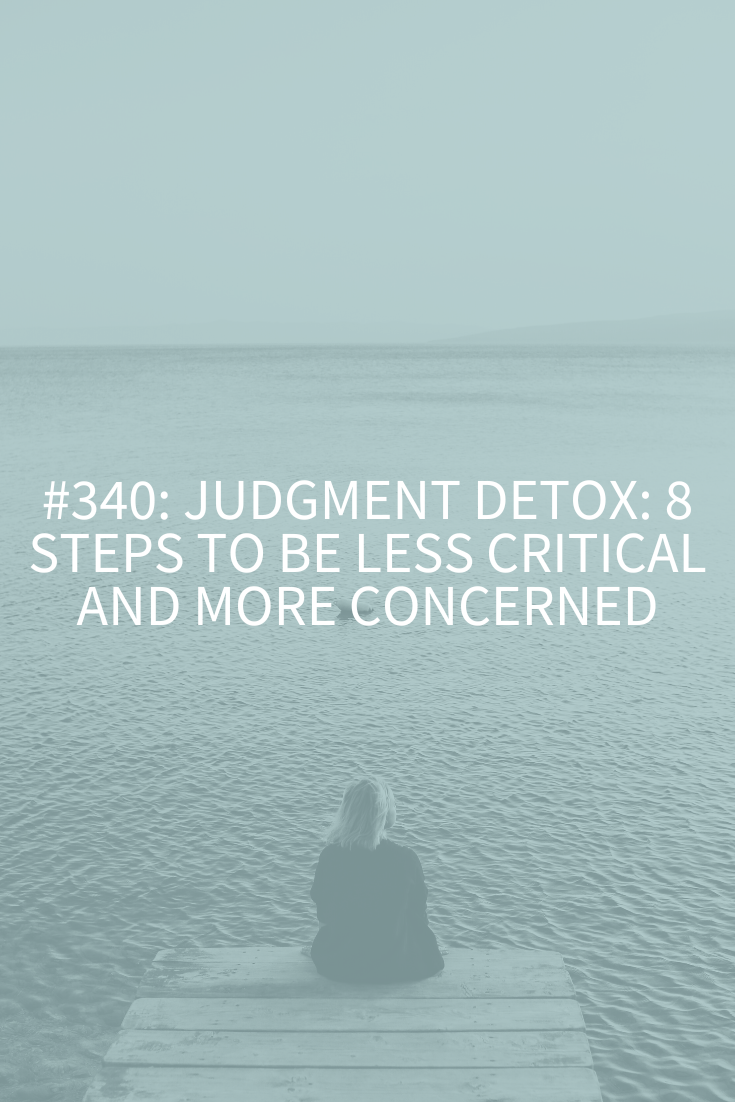
You can’t stop thinking about it, no matter how hard you try. You’ve got some event or interaction from your past or future on an endless negative loop in your brain and you’re feeling more anxious, depressed and overwhelmed as a result. Why do you do this when you know it doesn’t help, and how can you stop? Today I’m answering all your questions and bringing you my five steps to stop (or at least greatly minimize) ruminating and repetitive negative thinking.
6-minute read
Introduction
Worrying or thinking about something that’s bothering you is normal. Even overthinking can be normal. However, having persistent negative thoughts about something or someone, that you can’t stop (even though you’ve tried), is another story. When your thinking becomes compulsive about a topic, and all that thinking doesn’t lead to any healthy solutions, that’s when you know you’re engaging in unhealthy rumination. Rumination turns normal worries into a habit of repetitive negative thinking.
What is Rumination?
Rumination is also known as Repetitive Negative Thinking (RNT). The American Psychological Association (APA) defines rumination as “obsessional thinking involving excessive, repetitive thoughts or themes that interfere with other forms of mental activity.” Meaning, your thoughts are getting in the way of leading a happy life. Basically, we’re talking about a repetitive negative thought cycle that’s on an endless loop with no completion or resolution in sight.
RNT has also been defined in the research as a style of thinking about your current, future or past problems or negative experiences (past or anticipated) that’s:
- Repetitive
- Intrusive
- Difficult to disengage from, and
- Perceived as unproductive
How Do I Know I’m Ruminating vs Just Thinking About Something?
There are a few signs that you’re engaged in unhealthy rumination versus just thinking about something important.
- The importance of the thing you’re thinking about. For example, is worrying about what you said in a meeting last month really something you should still be thinking of a month later?
- Negativity is predominant, or you’re only focusing on the negative aspects of a situation. If you’re thinking in a healthy way about something, there should be both negative and positive thoughts.
- Your thinking is overly pessimistic.
- There are overriding cognitive distortions such as all-or-nothing thinking or catastrophizing.
- You feel worse after thinking about this thing.
- You don’t come up with any good, healthy solutions to the issue.
- You don’t come up with a new perspective.
- There are no “aha” moments.
- You feel an adrenaline surge instead of calmer after thinking about the situation or person.
- You feel guilt, overwhelm, shame, hopeless or helpless.
You know you’re ruminating because you feel worse with no clear way forward! Even after all that thinking, you haven’t put anything into perspective or come up with solutions or next steps. You feel guilt, shame, overwhelm, hopeless or helpless afterwards. There are no aha moments.
What Causes Rumination?
In the past, clinicians and researchers felt that people had a mental health issue, such as depression or anxiety and rumination was a result of that. Rumination has been linked to a number of mental health issues, including depression, anxiety, obsessive-compulsive disorder, PTSD, eating disorders and substance use disorders. And it’s been shown that rumination exacerbates all these conditions. However, there’s research that now shows that repetitive negative thinking is a “causal mechanism in the development and maintenance of these mental health issues.”
The APA has listed some common reasons for rumination, including:
- The belief that ruminating will help you gain insight into a problem
- Having a history of emotional or physical trauma
- Certain personality traits, such as perfectionism and codependency
- Mental health issues
It’s also important to note that the research shows that women tend to ruminate more than men.
Why Do You Do It Even Though You Know It’s Bad for You?
Even though you’ve likely had proven negative consequences from your repetitive negative thinking, you still do it. But why? Basically, you still do it because it’s become a habit. It’s a habit of thought. So, when we discuss steps to stop, you need to keep this in mind. What you’re focusing on is breaking a mental habit.
Five Steps to Stop/Minimize Rumination
First and foremost, remember that you’re not broken, but you’ve gotten into an unhealthy habit that you need to change, so it’s going to take attention and intention to turn this ship around.
The following are five steps to help break the cycle of rumination.
- Mindfulness. You need to work on your mindfulness above all else so you’ll notice when the rumination is happening. If you haven’t yet, it’s definitely time to download my Mindfulness Starter Kit!
- Start your day with positive momentum. It’s difficult to stop once you’ve begun ruminating, so you’ve got to get ahead of it. How you begin your habit of thinking first thing in the morning is key. Start your day with positive momentum and directing your thinking from the moment you wake up. Set intention throughout the day, focusing on intention chunking every time you switch tasks.
- Ground. When you catch yourself ruminating, do a quick grounding exercise and then have a mantra or new thought at the ready. You can download my free list of Grounding Exercises right now.
- Distract. Research also shows that distractions can help, so have some at the ready. For example:
- Exercise daily but make sure it’s something where you need to concentrate. Running endless miles isn’t going to help if you spend the whole time ruminating. Instead, take part in an activity where you need to focus. Even better, try to take part in an activity with other people so you’re fully engaged.
- Carry a book around with you so you can jump into reading when those thoughts persist.
- In the 12-steps, we have sponsors. Think of someone (or a couple of people) who you can call when you get into this compulsive habit of thought to help you break the cycle. When you call, don’t talk about the thing you were thinking about though! Instead, distract with something else.
- Set a worry timer. Yup. If all else fails, set a timer for anywhere from 15 to 30 minutes, and then take that time to allow yourself to worry. To help make this time productive, I want you to stop trying to figure out whatever’s bothering you. This time shouldn’t be solution-focused. Instead, do some journaling with the following prompts:
- What’s the worst that can happen and can I live through that?
- What I’m most afraid of is…
- The best that can happen is…
- What else could be true about this situation?
- What can I do right now to feel calmer (not to solve this)?
- What can I think right now to feel calmer?
Research and Resources for Five Steps to Stop Ruminating and Repetitive Negative Thinking
Learned Optimism Jumpstart Workshop
Finally Stop Having Negative Thoughts
The Simple Hack to Stop Your Negative Thoughts All Day
Abby’s Step-by-Step Guide to Starting Your Day Right
Definition of Rumination, American Psychological Association






